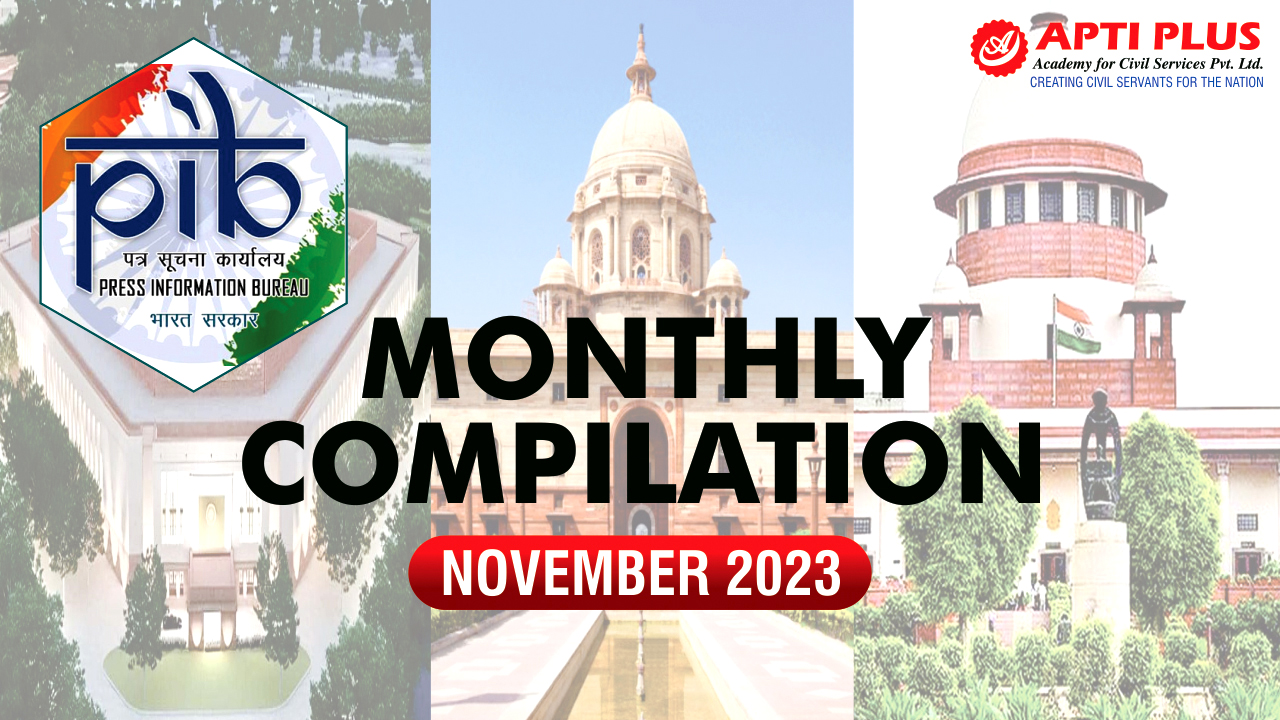
Copyright infringement not intended
Picture Courtesy: www.gconnect.in
Context: The creation of an All-India Judicial Service (AIJS) is a complex issue that involves considerations of diversity, efficiency, linguistic diversity, federalism, and judicial independence.
All-India Judicial Service (AIJS)
- The judiciary is one of the pillars of democracy and plays a vital role in upholding the rule of law, protecting the rights of citizens, and delivering justice.
- The Indian judiciary faces many challenges such as pendency of cases, lack of diversity, shortage of judges, and varying standards of recruitment and training. To address these issues, the idea of creating an All-India Judicial Service (AIJS) has been proposed and debated for several decades.
- The AIJS is a proposed service that would recruit judges at the level of additional district judges and district judges for all states through a centralized examination conducted by the Union Public Service Commission (UPSC).
- The AIJS would be similar to other all-India services such as the Indian Administrative Service (IAS) or the Indian Police Service (IPS).
- The constitutional provision for creating the AIJS is given in Article 312 of the Constitution of India, which empowers the Parliament to create one or more all-India services common to the Union and the States in the national interest. However, such a service cannot include any post inferior to that of a district judge, as defined in Article 236.
|
The purpose of creating the AIJS is to ensure an efficient, uniform, and diverse subordinate judiciary that can address structural concerns such as varying pay and remuneration across states, filling vacancies faster, and ensuring standard training nationwide.
|
What is the background and status of the AIJS proposal?
- The idea of creating the AIJS was first recommended by the Law Commission of India in its 14th report on reforms in judicial administration in 1958. Since then, several committees, commissions, and experts have supported and reiterated the need for establishing the AIJS. Some of them are:
- The Chief Justices' Conference in 1961
- The Constitution (Forty-second Amendment) Act, 1976
- The Law Commission's 77th report in 1978 and 116th report in 1986
- The Supreme Court's judgment in the All India Judges Association v/s Union of India case in 1992
- The First National Judicial Pay Commission headed by Justice Shetty in 1999
- The Parliamentary Standing Committee on Personnel, Public Grievances, Law and Justice in 2006
- The National Commission to Review the Working of the Constitution in 2012
- The President of India's inaugural address at the Supreme Court's Constitution Day celebration in 2023
- Despite these recommendations, the AIJS has not been implemented yet due to various reasons such as opposition from some states and high courts, lack of consensus among stakeholders, legal and administrative hurdles, and political will.

What are the benefits and challenges of creating the AIJS?
- Improving the quality and efficiency of justice delivery by attracting meritorious candidates through a transparent and competitive selection process.
- Enhancing the diversity and representation of marginalised groups such as women, SCs, STs, OBCs, etc. in the judiciary by providing reservations and incentives.
- Reducing the pendency and backlog of cases by filling up vacancies faster and ensuring adequate judicial strength across states.
- Promoting uniformity and standardisation of recruitment, training, service conditions, and career progression of judges across states.
- Facilitating judicial mobility and exchange of best practices among states by allowing inter-state transfers and deputations.
- Strengthening judicial independence and accountability by reducing political interference and ensuring performance appraisal
Some critics of the AIJS point out various challenges and drawbacks such as:
- Violating the federal structure and autonomy of states by centralising judicial recruitment and administration.
- Undermining the authority and role of high courts in supervising and controlling subordinate courts.
- Disregarding local laws, languages, customs, and traditions by appointing judges from outside states.
- Creating resentment and demotivation among existing judicial officers who may lose their seniority or promotion prospects.
- Facing legal obstacles such as amendments to Articles 233 and 234 which deal with state-level appointments of district judges.
- Lacking clarity on various aspects such as reservation policy, eligibility criteria, syllabus, examination pattern, training modules, etc.
Way forward for implementing the AIJS
The creation of the AIJS is a long-pending reform that requires political consensus, judicial cooperation, legal clarity, administrative feasibility, and public awareness. Some possible steps that can be taken to expedite its implementation are:
- Holding consultations with all stakeholders such as state governments, high courts, bar associations, civil society groups, etc. to address their concerns and suggestions.
- Forming a high-level committee or commission to draft a comprehensive bill or legislation on the AIJS, covering all aspects such as reservation policy, eligibility criteria, syllabus, examination pattern, training modules, etc.
- Introducing and passing the bill or legislation in the Parliament with the support of at least two-thirds of the members present and voting in the Rajya Sabha, as required by Article 312.
- Setting up a dedicated body or authority to oversee and coordinate the recruitment, training, service conditions, and career progression of AIJS judges.
- Conducting periodic reviews and evaluations of the AIJS to assess its impact and effectiveness

Conclusion
- The AIJS is a visionary and ambitious idea that has the potential to transform the judiciary and society. However, it also involves many complexities and challenges that need to be resolved with care and caution. The AIJS is not a panacea for all judicial ills, but a step towards judicial reforms.
Must Read Articles:
All India Judicial Service: https://www.iasgyan.in/daily-current-affairs/all-india-judicial-service
|
PRACTICE QUESTION
Q. What are the primary challenges and potential benefits associated with implementing the All-India Judicial Service (AIJS), and how might its introduction impact the diversity, efficiency, and autonomy within India's judicial system?
|




